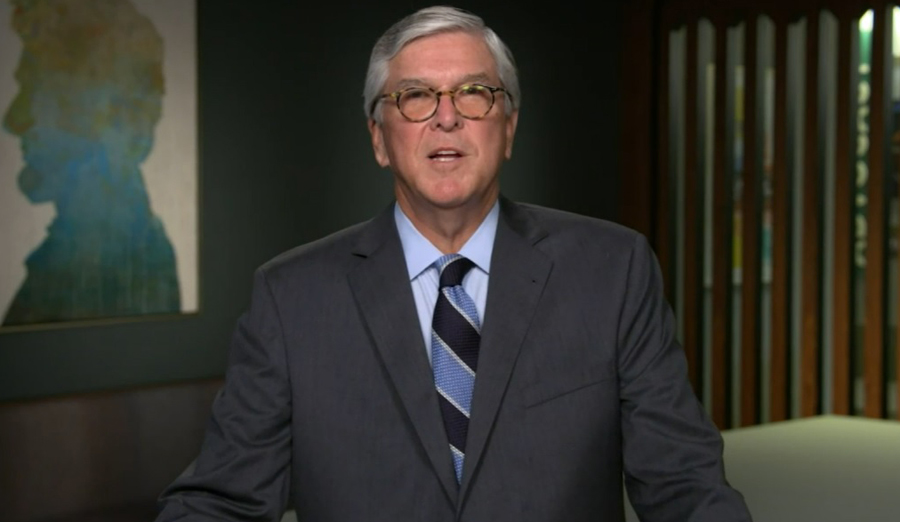NAB's Smith: Peas, Policy and Politics
Retiring association head reflects on life in Washington

The smarter way to stay on top of broadcasting and cable industry. Sign up below
You are now subscribed
Your newsletter sign-up was successful
National Association of Broadcasters president Gordon Smith, whose father was in the food processing business but came to Washington to work in the Eisenhower administration and whose mother was a Udall of political family fame, reflected this week on what he called a life of "the battle of peas, policy and politics," a battle he had loved.
Smith, who is retiring, took the opportunity of accepting the Lifetime Achievement Award from the Media Institute at a virtual gala this week from Washington to reflect on his time in Washington, both in battles on the Hill and in defending broadcasters wherever their best interests were threatened.
Smith, the former Republican senator from Oregon, suggested that his call to service actually came not from a Republican President, but a Democratic one.
He said he remembered at the age of eight his mother awakening him on Jan. 20, 1961 and dress warmly to go to the inauguration of the new President, John F. Kennedy, because Smith's cousin, Stewart Udall, was going to be secretary of the interior.
Also: NAB's Smith: Time to Acknowledge Election of Joe Biden
He said that President's "clarion call" to a new generation to ask what they could do for the country.
"The whole occasion struck me as important, something to be aspired to and something to value."
Smith said he early on had a passion for news, and while his mother said that the best way to ruin a good story was to hear the other side, he says he never lost his passion for policy or hearing the other side. "In politics," he said, "what you see depends on where you sit." Smith said it was important to respect that view from others as you would hope they would respect your experience.
Smith said the central plank in his service was the First Amendment, which has to do with protecting the freedoms of religion, press and assembly, and to petition the government for redress of grievances, and how each builds on the other.
The protections of religion are about the freedom of conscience, to think and decide what you believe, he said. If you are allowed to think and believe something, you need to be able to speak about it, you should be free to publish it, and if you want to publish it, you can assemble people to your cause, and then you can redress grievances. "It all fits together," he said, and it is called democracy.
He said when you are nurtured at the knee of a Udall mother, you want to try and make the world a better place, to keep the Second Commandment of loving your neighbor.
Smith said NAB gave him a place to to do that because of broadcasters' daily charge to serve the public interest.
Flanked by a silhouette of Lincoln, Smith quoted from the President who, amidst the terrible conflict of the Civil War and his vilification from some quarters, said: "Let the people know the facts and the country will be safe."
In a digital age where fake news runs rampant on social media, Smith said he felt fortunate to stand with the best source of finding the facts, and that is among radio and TV broadcasters. He said he was thankful they had included him in their ranks for the dozen years he has headed the association.
The smarter way to stay on top of broadcasting and cable industry. Sign up below
Contributing editor John Eggerton has been an editor and/or writer on media regulation, legislation and policy for over four decades, including covering the FCC, FTC, Congress, the major media trade associations, and the federal courts. In addition to Multichannel News and Broadcasting + Cable, his work has appeared in Radio World, TV Technology, TV Fax, This Week in Consumer Electronics, Variety and the Encyclopedia Britannica.

